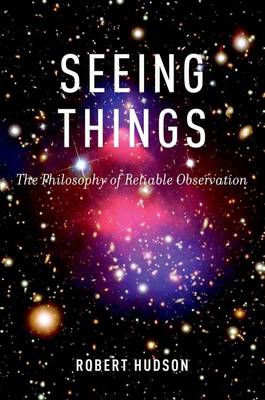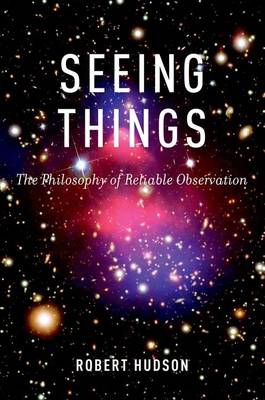
- Afhalen na 1 uur in een winkel met voorraad
- Gratis thuislevering in België vanaf € 30
- Ruim aanbod met 7 miljoen producten
- Afhalen na 1 uur in een winkel met voorraad
- Gratis thuislevering in België vanaf € 30
- Ruim aanbod met 7 miljoen producten
Omschrijving
In Seeing Things, Robert Hudson assesses a common way of arguing about observation reports called "robustness reasoning." Robustness reasoning claims that an observation report is more likely to be true if the report is produced by multiple, independent sources. Seeing Things argues that robustness reasoning lacks the special value it is often claimed to have. Hudson exposes key flaws in various popular philosophical defenses of robustness reasoning. This philosophical critique of robustness is extended by recounting five episodes in the history of science (from experimental microbiology, atomic theory, astrophysics and astronomy) where robustness reasoning is -- or could be claimed to have been -- used. Hudson goes on to show that none of these episodes do in fact exhibit robustness reasoning. In this way, the significance of robustness reasoning is rebutted on both philosophical and historical grounds.
But the book does more than critique robustness reasoning. It also develops a better defense of the informative value of observation reports. The book concludes by relating insights into the failure of robustness reasoning to a popular approach to scientific realism called "(theoretical) preservationism." Hudson argues that those who defend this approach to realism commit similar errors to those who advocate robustness reasoning. In turn, a new form of realism is formulated and defended. Called "methodological preservationism," it recognizes the fundamental value of naked eye observation to scientists -- and the rest of us.
Specificaties
Betrokkenen
- Auteur(s):
- Uitgeverij:
Inhoud
- Aantal bladzijden:
- 298
- Taal:
- Engels
Eigenschappen
- Productcode (EAN):
- 9780199303281
- Verschijningsdatum:
- 1/10/2013
- Uitvoering:
- Hardcover
- Formaat:
- Genaaid
- Afmetingen:
- 145 mm x 211 mm
- Gewicht:
- 476 g

Alleen bij Standaard Boekhandel
Beoordelingen
We publiceren alleen reviews die voldoen aan de voorwaarden voor reviews. Bekijk onze voorwaarden voor reviews.











